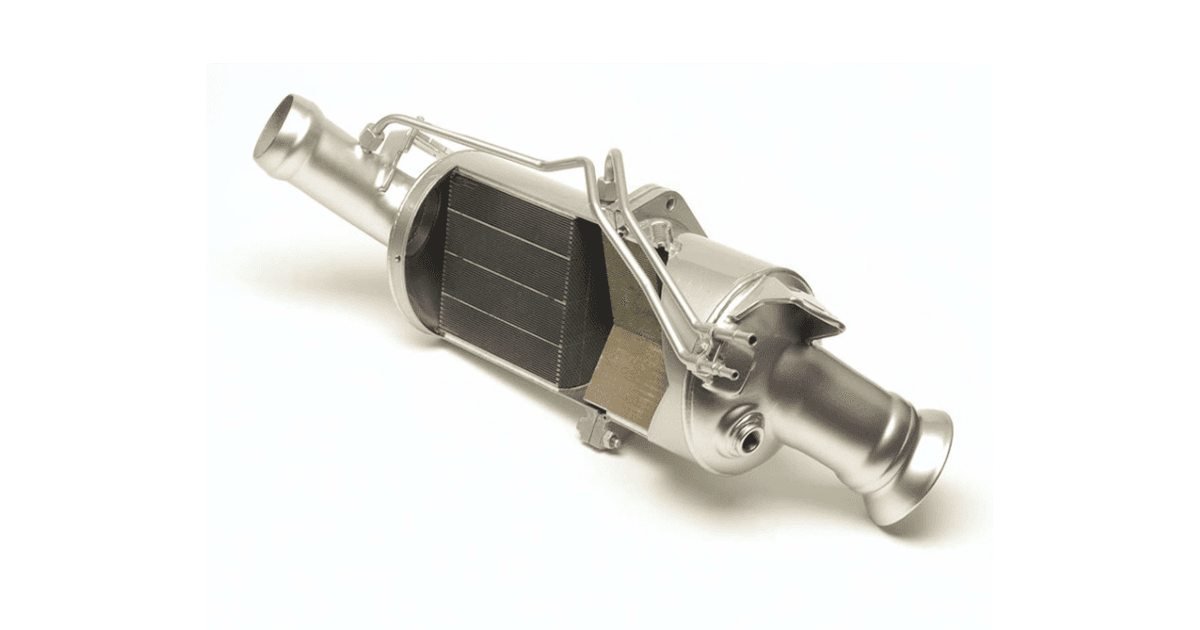Diesel Particulate Filters (DPF) and Their Impact on Chip Tuning
Diesel engines are well known for their durability and fuel efficiency, making them the best choice for various applications, from passenger vehicles to heavy-duty trucks. However, they produce a significant amount of particulate matter (PM), which poses a substantial environmental and health risk.
To address this issue, Diesel Particulate Filters (DPF) have been installed on modern diesel engines. DPFs play a crucial role in reducing emissions but introduce distinctive challenges and considerations that must be addressed when chip tuning a diesel engine.
What is a Diesel Particulate Filter (DPF)?
A Diesel Particulate Filter (DPF) is a device designed to capture and store elemental carbon particulates (commonly known as soot) to reduce diesel engine emissions. Over time, the accumulated soot needs to be burned off or emptied to regenerate the filter.
This regeneration process can be either passive (occurring naturally during driving) or active (initiated by increasing the exhaust temperature through the injection of additional fuel into the engine).
DPF and Emission Control
DPFs significantly reduce particulate matter emissions from diesel engines. They can remove up to 85% of the produced soot, and occasionally, this figure can reach 100% when other emission control technologies are present.
By trapping and periodically burning off the soot, DPFs ensure that diesel engines meet stringent environmental regulations.
The Effect of DPF on Engine Performance
Although DPFs greatly reduce the harmful byproducts released into the atmosphere from diesel combustion engines, they also affect engine performance. Most importantly, DPFs create additional back pressure in the exhaust system, slightly reducing engine performance.
DPFs require regular maintenance to function properly. If the filter becomes too clogged, it will eventually affect exhaust pressure, which, if not addressed, can lead to engine problems.
The Effect of DPF on Chip Tuning
Chip tuning involves modifying the engine control unit (ECU) parameters to enhance performance, improve fuel economy, and increase efficiency.
Chip tuning can include a range of adjustments, from altering fuel injection timings to modifying boost pressure, among others.
The presence of a DPF introduces several considerations for tuners:
Impact on Performance
- Back Pressure: Tuners must address the additional back pressure that DPFs create in the exhaust system, making adjustments to avoid any adverse effects on power output.
- Regeneration Cycles: Chip tuning can lead to increased soot production, necessitating more frequent DPF regeneration cycles. This can affect both the durability and efficiency of the vehicle, as well as its overall performance.
Chip Tuning Strategies
- DPF-Friendly Tuning: Tuners often develop specific maps that consider the presence of the DPF. These maps optimize fuel delivery and combustion processes, minimizing soot production while balancing performance gains with DPF longevity.
- DPF Removal: In some regions, or for certain racing or off-road applications, the DPF may be removed to eliminate back pressure. However, it is important to note that this practice is illegal in many areas and can lead to significant environmental and legal consequences.
- Optimizing Regeneration: Tuners can optimize the regeneration process, ensuring that it occurs under conditions that minimize fuel consumption and maximize power gains.
Performance and Emissions Balance
Achieving a balance between desired performance and compliance with emissions standards is crucial when chip tuning. Advanced chip tuning solutions, such as dynamic tuning maps and adaptive learning ECUs, can help achieve this balance by continuously adjusting engine operating conditions.
Conclusion on Diesel Particulate Filter (DPF)
The Diesel Particulate Filter is a crucial component in today’s diesel engines, significantly reducing harmful emissions. However, its presence poses challenges for chip tuning. Tuners must maintain a delicate balance between improving performance and ensuring emissions compliance.
To achieve the desired outcomes, tuners must thoroughly understand the interaction between the DPF and chip tuning to maximize tuning gains without compromising environmental standards.
As regulations continue to tighten, advanced tuning techniques, by professional chiptuning file service providers, will become increasingly important in improving the performance and efficiency of diesel engines while still meeting emission requirements.


